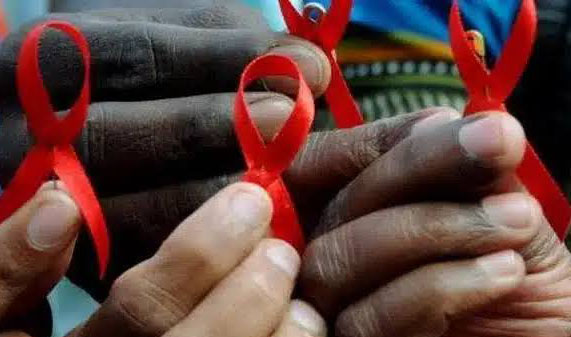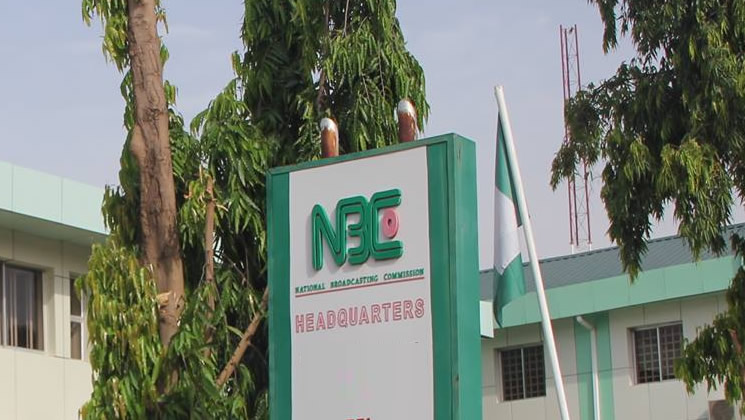
The frequent cases of fuel tanker explosion in Nigeria in which scores of lives have been lost are becoming a national embarrassment. Nearly every month, the country records one or two cases of the sad incident that are constantly blamed on bad roads, human errors, poorly maintained vehicles, substandard highway safety regulations for trucks as well as drivers’ state of mind. GBENGA AKINFENWA writes on how this menace can be checked.
In the last five months, over 500 lives have been lost and many other victims are now facing life-threatening deformities caused by tanker explosions in the country. The Guardian checks reveal that there may be more explosions, considering that little or no attention is being paid to addressing the root cause of the disasters.
No doubt, fuel tankers play vital role in the transportation of Premium Motor Spirit (PMS), also known as petrol, and other petrochemical products to different parts of the country, but they are causing disasters on the highway.
According to safety experts, the bulk carriage of the products presents special problems such as surging and falling, leading to explosion of the fuel tankers. The accidents constitute a serious threat to life and property.
On September 9, 2024, at least 52 people were roasted after a Kano-bound fuel tanker collided head-on with another truck in Agale area of Niger State resulting in a deadly explosion. The truck, which was transporting cattle, exploded on impact, killing at least 50 of the animals. Some other vehicles and passersby also got burnt. Initially, 30 bodies were discovered but later, more than 18 other victims who got burnt beyond recognition were found. The victims were given a mass burial owing to the severity of their injuries.
On October 15, 2024, another fuel tanker exploded in Majiya, Jigawa State, killing 209 people. About 124 other people were severely injured. It was learnt that more people fell victim when they went on scooping fuel from the fallen tanker that erupted in flame and burnt them. It was reported that the fuel tanker was coming from Kano and heading to Nguru in Yobe State when the driver lost control of the vehicle.
As the country was mourning the victims of the Jigawa State incident, another fuel tanker accident occurred in Ibafo, Ogun State on October 16. The tanker overturned on the main road in front of a commercial bank, spilling petrol before bursting into flames. The fire ravaged the area, burning other vehicles. Though there were no casualties, it was estimated to have damaged property worth millions of naira.
On November 13, 2024, Jigawa State recorded another fuel tanker explosion. The accident came a month after a similar one in October. It was learnt that the explosion happened at about 10:43 am at Tsaida, KwanarKalle, near Gamoji village along Maiduguri Road. According to media reports, prompt response of the Federal Fire Service, Jigawa State Command, brought the inferno under control.
In December 2024, a fuel tanker that was involved in a crash exploded in Agbor, Delta State, killing at least five people and destroying many homes and shops. A similar incident occurred on Wednesday January 14, 2025 at the Epe-Ijebu Odeyemi Expressway.
On January 18, 2025, another tanker exploded in Suleja area of Niger State, killing 98 people who had rushed to scoop fuel from the scene. The tanker overturned and spilled its contents. It exploded moments after people began scooping fuel, killing dozens and leaving 25 others, including rescuers injured. An emergency operation official said that the death toll might rise.
One of the latest of the accidents was the explosion in Enugu State, along the Ugwu-Onyeama axis of the Enugu-Onitsha Expressway. No fewer than 18 people were confirmed dead. The incident happened at about 11:30 a.m. when a fuel-laden tanker had brake failure, fell and exploded. One fuel tanker, one water tanker and 15 other vehicles as well as one tricycle were burnt in the unfortunate incident.
Also, on January 22, 2024 a tanker loaded with fuel exploded in Ibadan, Oyo State, killing its driver and injuring one other person. The incident happened around Fijabi House, Agbowo, Ojoo/Iwo Expressway when the driver lost control, rammed into two other trucks, and somersaulted into a nearby pit before bursting into fire. The driver was burnt to death while the motor boy was rescued alive and taken to the University College Hospital (UCH), Ibadan for treatment.
To some experts within and outside the country, and some concerned citizens, the recurring incidents are gradually becoming a national embarrassment. While many Nigerians have been sent to their early graves, scores of others have been rendered handicapped by injuries sustained in some of the incidents.
According to a report from the Federal Road Safety Corps (FRSC), in 2020, a total of 1,531 fuel tanker accidents occurred which claimed over 535 lives. Between 2013 and 2023, a total of 6,311 lives were lost in over 6,363 RTCs involving tankers and trailers. It was learnt that 5.2 per cent of the crashes on Nigerian roads involved articulated vehicles, which accounted for 10 per cent of total deaths through RTC.
The Corps Marshal, Shehu Mohammed, said the Jigawa tanker accident on October 15 accounted for the highest casualty in the history of loss of lives while scooping fuel from a fallen tanker, as over 200 people were burnt to death.
Investigations showed that these explosions are caused by social, technical and environmental factors, including human errors, bad roads and break failure. Also, ignorance, poverty, greed, and illiteracy were identified as some of the factors that make people to indulge in the habit of scooping fuel from fallen tankers during which they meet their untimely death.
Last year, the country recorded seven per cent increase in fatalities as 5,421 deaths were recorded against 5,081 people that lost their lives in 2023, according to the FRSC.
The Corps Marshal, Mohammed, told The Guardian that a total of 70,530 people were involved in road traffic crashes in 2024 compared to 70,092 in 2023, signifying an increase. He expressed regret that out of the total fatalities recorded in 2024, about 411 deaths, representing 7.6 per cent of the total, were not primarily caused by the crashes but a secondary factor which was scooping fuel from fallen tankers.
“This, therefore, implies that without the casualties recorded from scooping fuel from crashed tankers, the Corps would have recorded 5,010 deaths in 2024, against 5,081 in 2023 signifying 1.4 per cent reduction in total number of people killed.
“I wish to reiterate that the alarming rate of crashes and fatalities occurred as a result of loading of trailers with passengers, goods and persons, fatigue, speed violation, overloading, dangerous driving, as well as poor vehicle maintenance within the period under review. The 2024 recorded fatalities are alarming and, therefore, unacceptable. The situation is worrisome, especially, in cases of unprecedented fatalities as a result of scooping of petroleum products from crashed tankers,” Mohammed said.
On the causes of the persistent accidents, the Corps Marshal explained that an average of 3,000 tankers move petroleum products across the country daily, creating safety concerns. According to him, the situation is not sustainable as many of the trucks transport the inflammable products for several days on roads.
A professor of Economics, University of Ibadan, Oyo State, Adeola Adenikinju, noted that the major cause of the incessant accidents is that tankers are not designed to carry fuel over long distances. According to him, movement of fuel was designed to be from refineries to depots, and from depots to nearby towns where the tankers then distribute the products.
“But because the depots have collapsed and the infrastructure has collapsed too, that’s why you now have a situation where tankers are now going thousands or hundreds of kilometers. And because of the bad roads and the poor maintenance of those vehicles, and the fact that nobody actually tests the drivers to know their psychological state, you’ll continue to have a situation where hundreds of Nigerians are dying.
“So, fundamentally, we have to find a way of restricting the long distance the trucks have to travel. We have to encourage the revival of the depots and do more and we have pipeline system through which you move the fuel to hinterlands,” he said.
Adenikinju expressed regret that the negative impact of the malaise is enormous, noting that when trucks have accidents and people are dead, the environment is also destroyed because it releases all kinds of pollutants.
“The impact of pollution around you affects the breathing of people, which can also impact on their health. So, we have to spend more, try to treat them or take care of those who are being injured.
“So, economically, you also lose. You lose in the sense that the pollutants are destroyed, you lose the value of the life that is lost. You also have to spend money on health to take care of those who are injured or those who are affected by the heating of the polluted atmosphere.
“Then, the roads, also, we have to reconstruct them because they are damaged. People cannot travel on that road until after some time. So, the costs are just extremely high,” he said. Even, the Petrol Tanker Drivers Association blames the frequent crashes on poor road conditions and lack of enforcement of road safety measures, including speed and load limits.
Disturbed by this development, President Bola Tinubu has directed relevant security and road safety authorities to take action to prevent recurrence of fuel tanker accidents nationwide. He also tasked the National Orientation Agency (NOA) with educating the public about the dangers of scooping fuel from fallen tankers.
It was learnt that consequent upon the president’s directive, a committee comprising officials of the Ministry of Information and National Orientation, Ministry of Humanitarian Affairs and other critical stakeholders, including the National Emergency Management Agency (NEMA), Standards Organisation of Nigeria (SON), Petroleum Tanker Drivers Association has been set up to determine the remote and immediate causes of the accidents and how to prevent them.
The FRSC Corps Marshal told The Guardian that as the lead agency on safety on the road, the commission would strengthen collaboration with relevant stakeholders to check the accidents.
“On prompt repairs of roads, FRSC will continue to partner with FERMA to maintain the road infrastructure. On the drivers, the FRSC would continue to train and retain truck drivers on the proper ways to use the highways safely. The corps will also strengthen its cordial relationship with NOA for mass education of the general public on the dangers inherent in scoping petroleum products from crashed tankers.
“Aged trucks should be replaced to minimise trucks breaking down, which may lead to crashes and the temptation to scoop the spilled contents. FRSC will also continue to advocate for strict adherence to standards prescribed by standard and regulatory agencies on the safe carriage of petroleum and other dangerous substances on the roads, including the construction of tankers for transporting them.
“The safe-to-load scheme where the FRSC deploys its operatives to tank farms for pre-loading inspection of petroleum tankers and their certification before loading will be given serious attention. Fleet operators are also to adhere to the Road Transport Safety Standardization Scheme (RTSSS), which regulates fleet operators with five vehicles and above.”
Prof Adenikinju suggested that as government is regulating the sector, it must find a way of prioritising the construction of pipelines. “It can be by private sector, it doesn’t have to be government, but you can make it in a way that private sector is advised to build pipelines, to build depots, and then to link these depots across the country. There is need to ensure that tankers don’t operate more than maximum acceptable global standard of transportation,” he advised.






